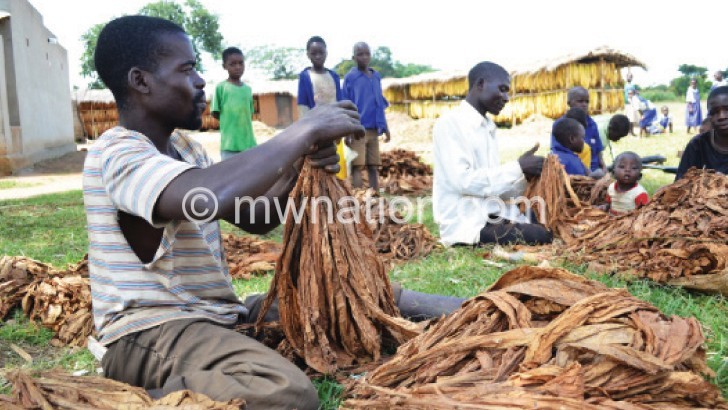Bumpy rise as kwacha slips
Malawi’s kwacha is edging downward against major foreign currencies as further signs of lower-than-expected tobacco earnings continue to manifest on the currency market.
This could be a sign of a bumpy ride ahead as sales of tobacco-the country’s major foreign exchange earner-are not inspiring confidence on the market, University of Malawi’s Chancellor College economics professor Ben Kaluwa said yesterday.
Foreign exchange rates in some authorised dealer banks (ADBs) show that the local unit has slipped by close to 15 percentage points within a week.

For instance, on Monday, the kwacha was trading at around K698 to a dollar, but by yesterday, the local unit traded at K713 in some ADBs, which is a little softer than K730 to a dollar on the parallel market, otherwise known as the black market.
However, the weakening of the kwacha comes against the backdrop of a health foreign exchange reserves position of $931 million (gross official reserves and private sector reserves), which is an equivalent of 4.36 months of import cover, way above the internationally recommended three months, touted as the rule of thumb.
Kaluwa, in an interview, said the performance of the kwacha is a reflection of the chaos on the tobacco market, whose earnings are 50 percent below what was realised last year during the same period, according to figures from Tobacco Control Commission (TCC).
“As you are aware, there has been high rejection rate and pricing is not so rosy particularly on the auction market [of tobacco] and this is not good at all on the performance of the kwacha.
“Additionally, there is an expected drop in sugar earnings [one of the main foreign exchange earners] because of the bad agriculture year, and this is likely going to put pressure on the currency market,” he said.
A Blantyre-based investment analyst yesterday said the market is watching closely on what is happening on the currency market with regard to tobacco earnings.
“Foreign exchange dealers are pricing the currency based on the forecast of tobacco earnings which, from the look of things, will be lower than last year,” said the analyst.
The weakening of the local currency comes a few weeks after it had stabilised due to reasons analysts could not explain, but urged caution as some people were celebrating.
Bankers Association of Malawi (BAM) Misheck Esau, in an earlier interview, said those celebrating better do so with caution to avoid disappointment soon.
In his view, he said the fundamentals that make the country’s currency unstable unchanged.
“The negative balance of payments gap still remains. When the currency appreciates, it is usually on account of the temporal episodes of liquidity squeeze in the banking sector. When liquidity rebounds, watch the space,” warned Esau, who is also chief executive officer of CDH Investment Bank.
His caution seems to be coming to pass as the kwacha is slowly but surely losing value.
However, the easing of the kwacha could be a boon for tobacco farmers because their earning in the local currency’s terms will be as compared to when the kwacha had stabilised.






ifike K1000/USD alimi atolere.